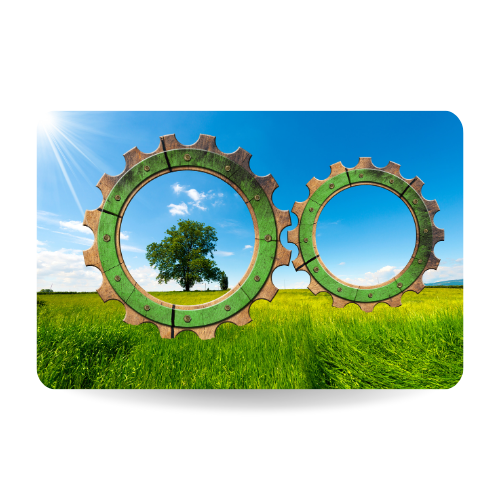The overall objective of this series of webinars on “European Green Deal - Greening EU cooperation” is to enhance participants’ knowledge and understanding of the European Green Deal and its implications for EU cooperation; and strengthen the capacity of the participants in “Greening EU cooperation” through integrating environment and climate change-related themes into all sectors and all instruments of EU development cooperation.
This e-learning package gathers learning resources from 9 different learn4dev organizations around the topic of Green Recovery.
ADA, AECID, AFD, European Commission - DG INTPA, Enabel, GIZ, LuxDev, Finland's Ministry of Foreign Affairs and Sida have joined forces to create this e-learning package on a Green Recovery, in the framework of the Team Europe initiative and the Learn4dev network.
You can access resources on 9 different topics, 3 different languages, and different formats such as webinars, e-learning courses and videos.
Blending is an instrument for achieving European Union (EU) external policy objectives, complementary to other aid modalities and pursuing the relevant regional, national and overarching policy priorities. It is the combination of EU grants with loans, risk capital or guarantees from public and private financiers. The idea behind the instrument is that the EU grant element can be used strategically to attract additional financing for important investments for development in EU partner countries.
Tools and Methods Series, Reference Document No 21
Version November, 2015
This document focuses attention on the use of codes of conduct and partnership principles as instruments of coordination and not as tools for common pool funding or delegated cooperation or agreements on division of labour.
Tools and Methods Series, Reference Document No 11
Version October, 2010
This e-learning course aims to support actors across EU Units and beyond in shaping the transition to a circular economy. The material was prepared by the European Commission Directorate-General International Partnerships Unit F2 with support of the SWITCH to Green Facility.
Duration: 1 hour
The training aims at strengthening capacities of stakeholders for the sustainable management of land and natural resources. Thus, the focus is on how to formulate and implement operational activities to prevent and address conflicts over natural resources within a development framework.
The course is particularly relevant for staff assigned to a fragile or crisis-affected country (HQ and DELs) where the conflict has been exacerbated by issues over natural resources.
Duration: 3 hours
This study was jointly commissioned by the African Development Bank and the European Commission. The report comprises a synthesis based on a literature review and case studies of sector approaches in the water sector in seven countries: Bolivia, Burkina Faso, Jordan, Lesotho, Senegal, South Africa and Uganda.
Tools and Methods Series, Reference Document No 16
Version November, 2011
SEA is a powerful tool to enhance the contributions of a national/sectoral policy or strategy towards environmentally sustainable, climate resilient and low carbon development.
Version 2017
Also available in Spanish
The purpose of this document is to highlight common principles and
synergies between sector-wide approach (SWAP) and Integrated Water
Resource Management (IWRM) in order to show how these two processes can
make a joint contribution to the development of the sector.
Tools and Methods Series, Reference Document No 7
Version December, 2009
Also available in French
